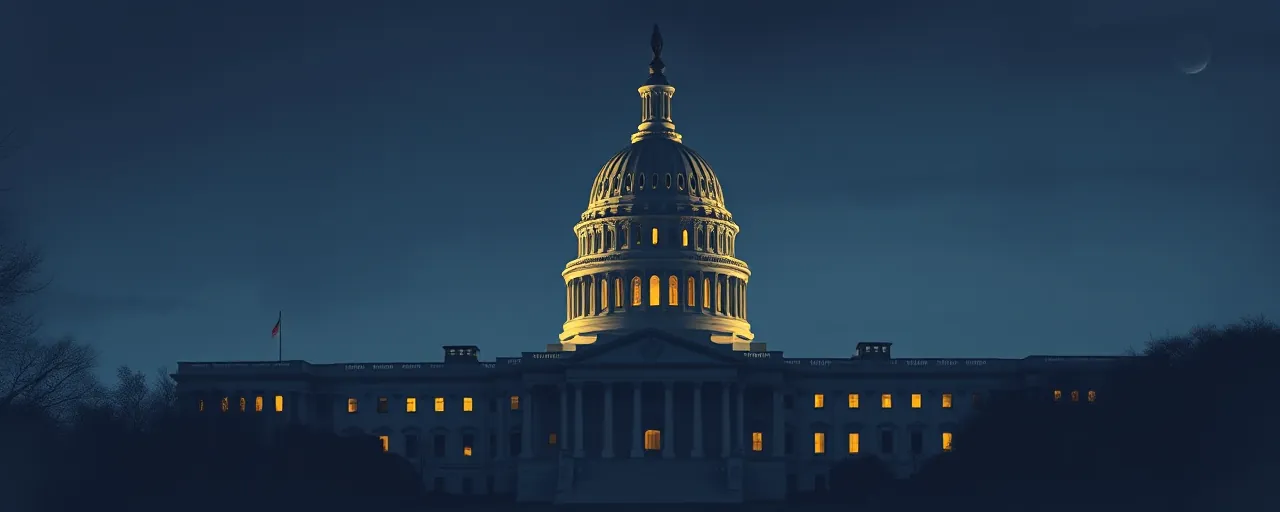A Nation That Knows Who’s Here
America’s borders aren’t just lines on a map; they’re the backbone of our sovereignty. Yet for too long, unchecked immigration has left us guessing who’s walking our streets. The Department of Homeland Security, under Secretary Kristi Noem, is finally tackling this head-on with a bold reminder: every non-citizen staying over 30 days must register by April 11, 2025, or face real consequences. This isn’t about punishment; it’s about clarity, safety, and restoring order to a system that’s been ignored for decades.
President Trump’s administration isn’t playing games. Executive Order 14159, signed on day one, demands accountability. The Alien Registration Act, a law on the books since 1940, isn’t some dusty relic; it’s a tool to ensure we know who’s in our country. Failure to comply means fines, jail time, or both. For those here illegally, Noem’s message is crystal clear: leave now, and you might still have a shot at the American dream later, but only if you respect our laws first.
Why Registration Matters
Let’s cut through the noise. Registering non-citizens isn’t about targeting anyone; it’s about protecting everyone. DHS data shows ICE arrested nearly 1,000 people in a single day last January, many with criminal records. Without knowing who’s here, how do we stop threats before they escalate? Fingerprinting and documentation for those over 14, or even Canadians lingering past a month, isn’t overreach; it’s common sense. The government’s job is to keep Americans safe, not to guess who’s sharing our neighborhoods.
History backs this up. When the Alien Registration Act first rolled out during World War II, over five million people complied, driven by a shared understanding that national security demands transparency. Back then, Americans saw registration as a small price to pay for stability. Today, with border crossings spiking and sanctuary cities defying federal law, that same logic applies. Opponents claim it’s harsh, but what’s harsher: knowing who’s here or rolling the dice on our safety?
Pushing Back on the Chaos
Some cities, like San Francisco, are already whining, filing lawsuits and crying about constitutional violations. They argue the federal government’s overstepping, hiding behind the Tenth Amendment or due process claims. But let’s be real: these are the same places shielding lawbreakers, tying the hands of ICE, and putting their own residents at risk. Pew Research from February 2025 shows 47% of Americans back tougher deportation efforts, and 58% want more border security. The people get it; why don’t these mayors?
The argument that registration ‘criminalizes’ immigrants falls flat. It’s not about punishing people for existing; it’s about enforcing laws that have been on the books for 85 years. Sanctuary policies create chaos, letting undocumented individuals slip through the cracks. DHS’s renewed focus, backed by Trump’s order, cuts through that mess. Collaboration with agencies like the DEA and ATF to track violators isn’t oppression; it’s efficiency. Cities fighting this are choosing ideology over accountability.
A Line in the Sand
This isn’t just policy; it’s a statement. America won’t be a free-for-all anymore. DHS’s push to enforce registration, complete with proof-of-compliance cards for those 18 and up, draws a clear line: follow the law or face consequences. Parents registering kids under 14, teens re-registering with fingerprints at 14, it all adds up to a system that prioritizes order. Critics might scream about civil liberties, but Ipsos polls show support for legalizing undocumented kids has dropped from 65% in 2018 to 46% now. People are tired of excuses.
The Trump administration’s track record proves this isn’t empty talk. From 2017 to 2021, they slashed visa issuances, tightened asylum rules, and expanded deportations. That same energy is back, and it’s what Americans voted for. Legal challenges will come, sure, but courts blocking federal authority in the past, like with sanctuary city funding, haven’t stopped the mission. DHS’s role—through CBP, ICE, and biometric programs like Secure Communities—is to execute, not debate.
Time to Act, Not Argue
The clock’s ticking. April 11, 2025, isn’t a suggestion; it’s a deadline. Non-citizens have a choice: register and respect the law or risk fines and jail. This isn’t about fearmongering; it’s about giving everyone a fair shot to comply. Secretary Noem’s right—those here illegally can leave now and maybe return legally someday. But ignoring the law? That’s a one-way ticket to trouble. Americans deserve a country where rules mean something, and DHS is delivering.
We’re at a crossroads. Enforcing the Alien Registration Act isn’t just about paperwork; it’s about reclaiming control of our borders and our future. The naysayers will keep suing, complaining, and deflecting, but the facts don’t lie: a nation that can’t track who’s inside its borders isn’t secure. Trump’s vision, executed by DHS, puts America first. It’s not perfect, but it’s progress. And for every American who values safety over sentiment, that’s a win worth fighting for.
